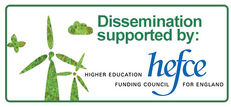Reducing the environmental impacts of the University's fleet of vehicles through a range of activities, including fitting trackers to the van in order to monitor and analyse patters and use. This data is used to accurately track and report on carbon emissions as well as enhance a working knowledge of the fleet which allows procurement decisions to be made according to specific requirements to enhance efficiency whilst meeting need.
As a result, the fleet consists of a mixture of fuel types including electric vans and has featured a hydrogen vehicle as part of a trial to develop the technology. Driver training is also undertaken to maximise efficiency. As a result of these measures, over four years the emissions per vehicle have fallen 17.83% and the university has gained a four out of five-star accreditation to the ECO Stars Fleet Recognition Scheme.
Top 3 learnings:
1 There is a wide market available, with a lot of information available to help procurement and operational decisions.
2 The electric vehicles needed surprisingly little maintenance, it was great to learn that they’re not the typical assumption of “milk float” electric vehicles, but viable petrol and diesel alternatives.
3 This cross departmental project has been a great team builder, bringing together procurement, insurance, Health and Safety, Operations, Transport admin and Sustainability on a common goal.
CO2t savings over the life cycle of the project:
32.12t Estimate 19/20 target projection compared to 2012/13 baseline
Videos







 Except where otherwise stated, content on this site is
licensed under a Creative Commons Attribution 3.0 License.
Except where otherwise stated, content on this site is
licensed under a Creative Commons Attribution 3.0 License.
